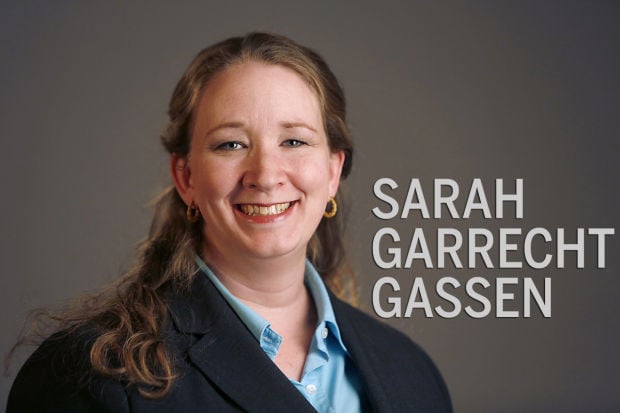Have we sunk so low as a nation that shutting the door on orphaned toddlers fleeing war and absolute destruction — as GOP presidential hopeful and New Jersey Gov. Chris Christie says the U.S. should do — is considered a legitimate national security tactic?
Are we Americans that weak, that insecure, that frail in our humanity that we’d take comfort — false comfort, to be sure — in the fantasy that refusing refugees fleeing Syria will somehow keep us safe?
Are we that facile?
A group of governors, mostly Republicans, including Arizona Gov. Doug Ducey, have decided that the way to reassure everyone that yes, they are on the job, is to announce that their states will not accept any refugees from Syria.
Christie, in an interview with a conservative radio host, this week criticized the U.S. system of vetting refugees who are allowed into the country for resettlement: “I don’t think that orphans under 5 should be admitted to the United States at this point.”
And Ducey, not to be outdone in the xenophobia department by states like Alabama, has proclaimed that Arizona will accept no refugees from anywhere. None.
The Nov. 13 terrorist attacks in Paris are frightening. And, as the pieces are put together, it’s clear that the reach of terrorist organizations is long. Attacks in Beirut, London, Kenya, Bali, Boston, and many more, destroying an air liner, and of course, 9/11 — we do live in scary and uncertain times and always have.
So it’s not a surprise that after the Paris attacks, politicians want to appear to be doing something. The rush predictably turns into doing the something that’s easiest — stoking people’s fear by proclaiming that outsiders are not only now unwelcome but automatically suspect and dangerous.
Is it possible that people who want to do harm are taking advantage of the massive wave of Syrian refugees walking their way across Europe? Yes. It’s naïve to think otherwise. But the facts show that the threats over the years, and in Paris, have come from our own citizens or from foreigners who arrived with valid visitor or student visas.
Refugee status is far more thorough and lengthy a process than a terrorist would face trying to enter the U.S. on a tourist/business visa. The 9/11 hijackers, for example, applied for 23 visas while planning the attacks, and were approved 22 times, according to the 9/11 Commission Report.
It’s more politically palatable, however, to say “no more refugees allowed!” than to turn away financially valuable tourists and business people on the premise that we’re keeping out terrorists.
This is a much more complicated situation than a stranger-go-home edict will address.
Demonizing parts of our communities at home won’t keep people safe, either. Dividing people into “good guys” and “bad guys” based on nationality, or religion or culture or appearance won’t make us more secure. The terrorist attack in Oklahoma City two decades ago should have taught us that lesson.
And the mass shooting murders in American theaters, schools, workplaces and grocery stores at the hands of our countrymen — most of them young white men, some acting on ideology — should remind us that we don’t need to look across the globe to find people who have the desire, and easily acquired means, to do harm.
People who want to do terrible things will find ways to do them. Simplistic responses, as we’ve seen from Ducey and his cohorts, might offer the illusion of action but only create further divisions in our communities — divisions where fear, distrust and alienation can fester into bad actions against one another.
The greatest threat of terrorism, in its many iterations, comes from inside.





